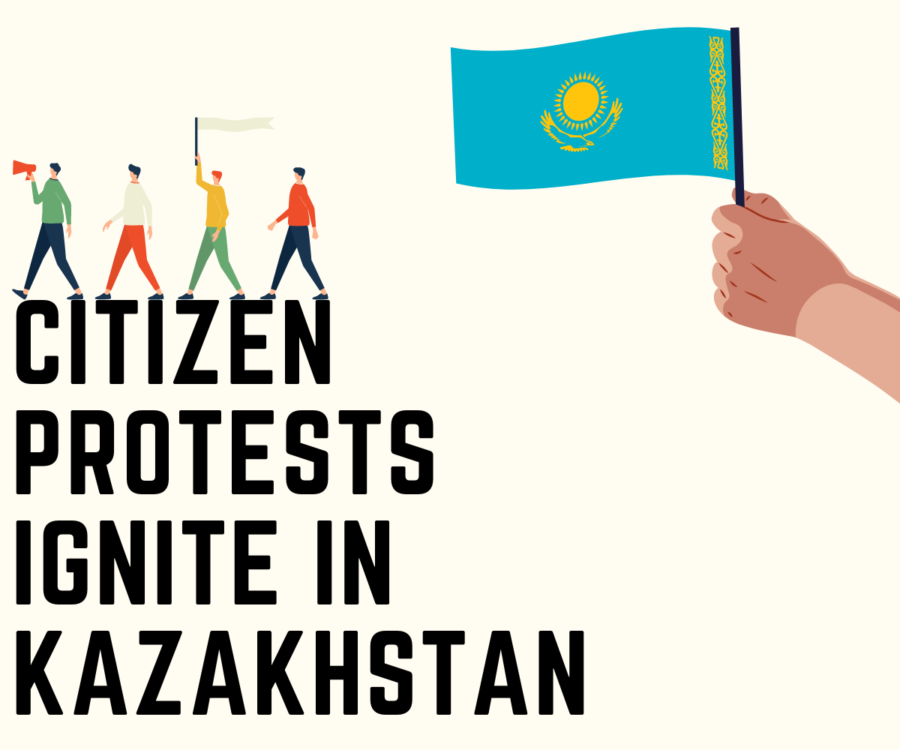Citizen protests ignite in Kazakhstan
Kazakhstan citizen protest the authoritarian government after fuel prices rise.
Kazakhstan, a sphere of influence of Russia, protests were initiated by a soar in fuel prices in relation to their authoritarian government. These protests are significant due to the country experiencing successful political and economic stability, but they are in the unstable region of blank in between Russia and China.
Anger began when prices rose for liquefied petroleum gas — a low-carbon fuel that is used to fuel their cars. However, these protests are only the shallow layer of the real, deep-seated issues that the Kazakhstan citizens are advocating to change.
As the world’s Top 10 largest nation by landmass, Kazakhstan attracts foreign investments and has continue to have a strong economy since it became independent three decades ago. But LPG subsidies caused the country to face oil shortages. In order to compensate, price caps were lifted to ease those deficits and make sure that the supplies went to the domestic market. This soon resulted in a backfire and prices doubled.
“As the protests have intensified, the demands of the demonstrators have expanded in scope from lower fuel prices to a broader political liberalization,” The New York Times said. “In short, protesters are demanding the ouster of the political forces that have ruled the country without any substantial opposition since 1991.”
On Jan. 5 this year, protests began in the airport in the city of Almaty, the country’s largest city, where they also broke into government buildings. The main administration building was soon ablaze. This led to grave clashes with the military, extensive city damage, and an internet blackout.
“The violence continued into the following day, with dozens of protesters killed and hundreds injured, according to an Almaty police official. Security forces reportedly fired on protesters and explosions were heard close to Republic Square in Almaty, Russian state news agency TASS reported,” CNN said.
The government responded by declaring a nationwide state of emergency with curfews and restrictions until Jan. 19 and military personnel had been deployed. In addition, Tokayev ordered the government to decrease the price of LPG to 50 tenge (11 cents).
The prime minister of Kazakhstan, Askar Mamin, and the government resigned during the uprisings. This resulted in the replacement of former President Nursultan Nazarbayev by Tokayev, who took over the country’s Security Council. However, these steps failed the prevent and stop protests.
The Collective Security Treaty Organization (CTSO), consisting of Russia, Belarus, Armenia, Kazakhstan, Kyrgyzstan, and Tajikistan, answered Tokayev’s request for aid to put down the protests. The Russian military alliance of prior Soviet states answered by sending peace forces for stability.
In Tokayev’s televised speech last week, he said that “terrorists continue to damage state and private property and use weapons against citizens” and that the CSTO forces would reside for a short time. In his address, he also stated that the uprisings were that of terrorism and corruption.
“But protesters who spoke to international media rejected that characterization. ‘We are neither thugs nor terrorists,’ one woman said. ‘The only thing flourishing here is corruption,” CNN said.
https://docs.google.com/spreadsheets/d/1PFkZZHHDvKFNqePlsqnyqH51-UBnIqXeDijxIKM_uog/edit#gid=0

